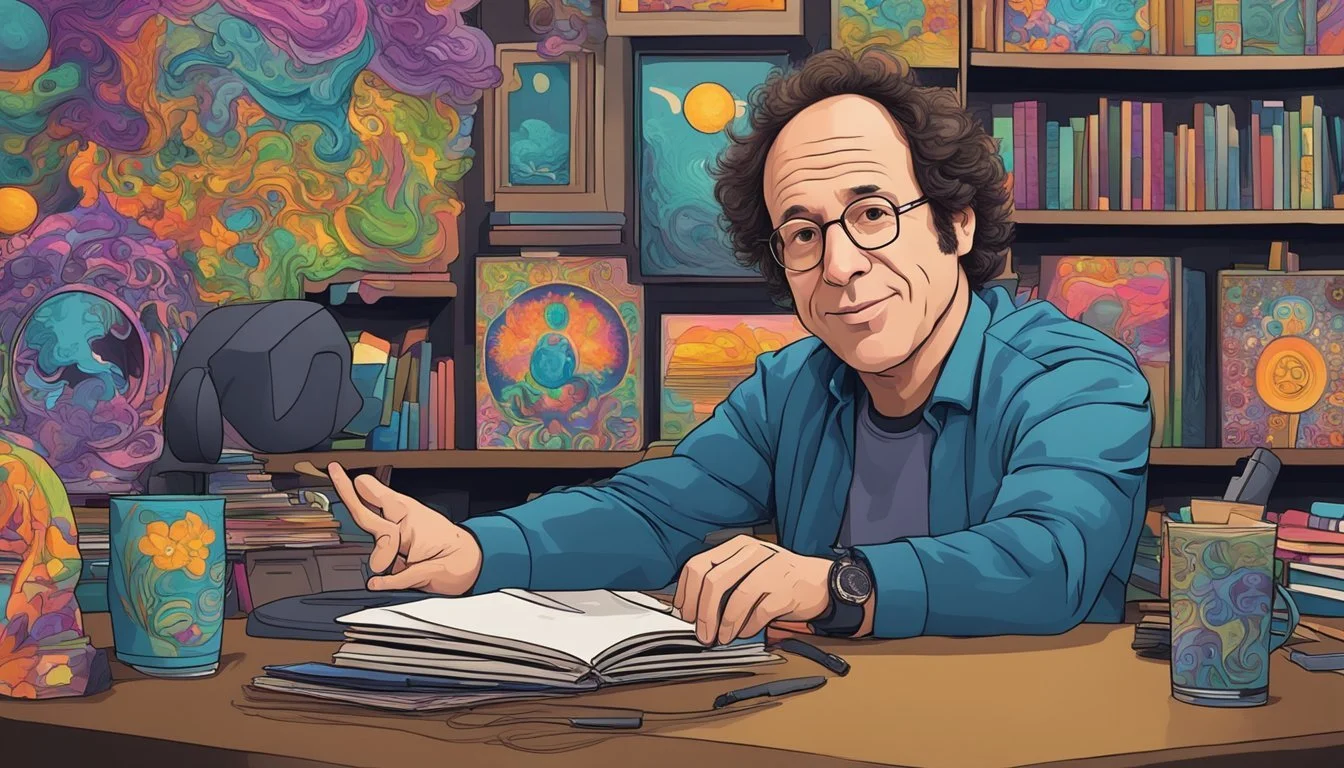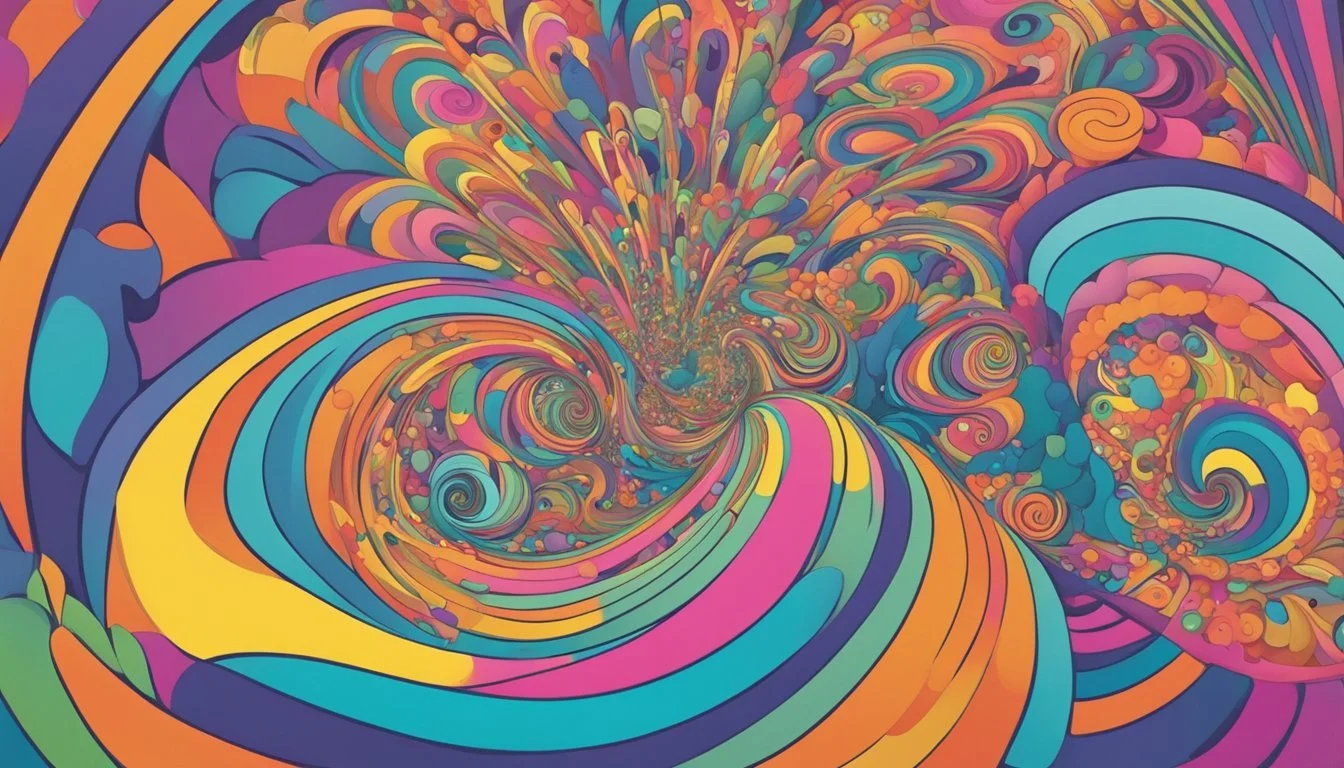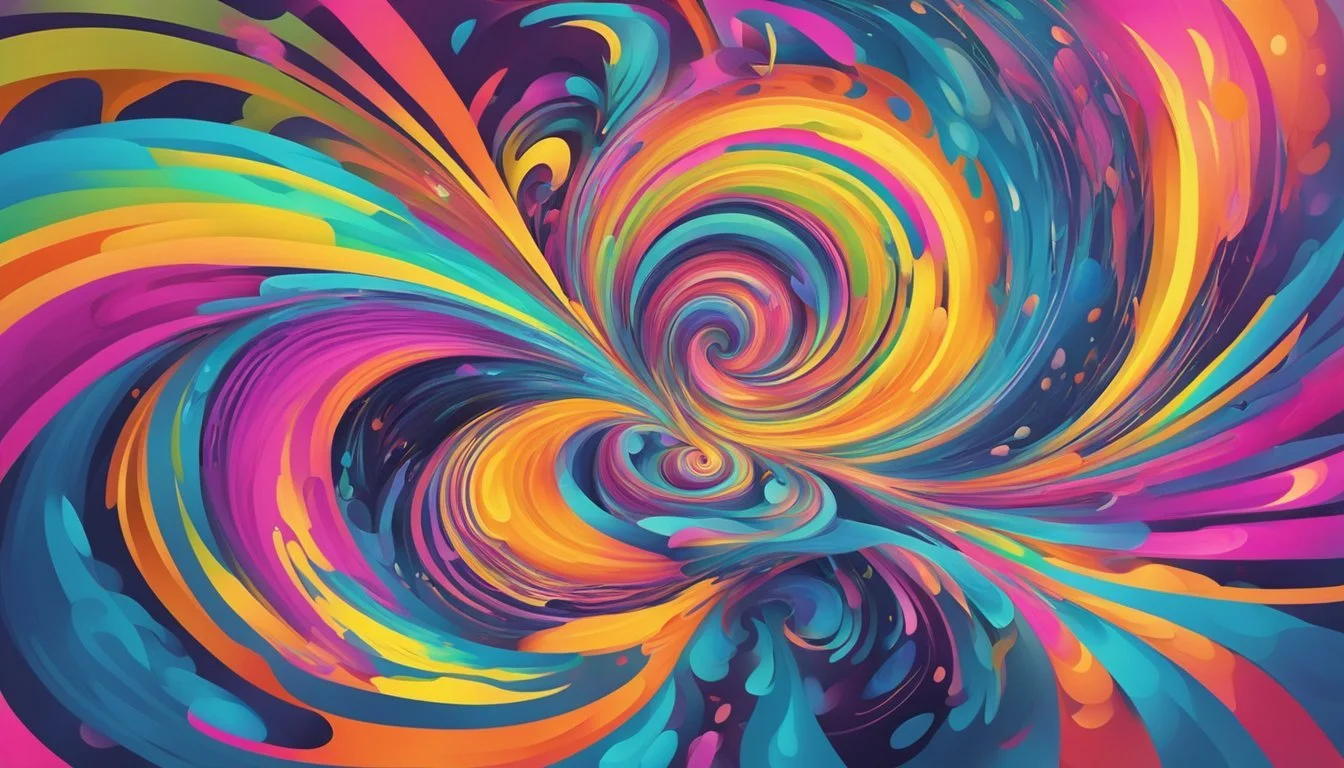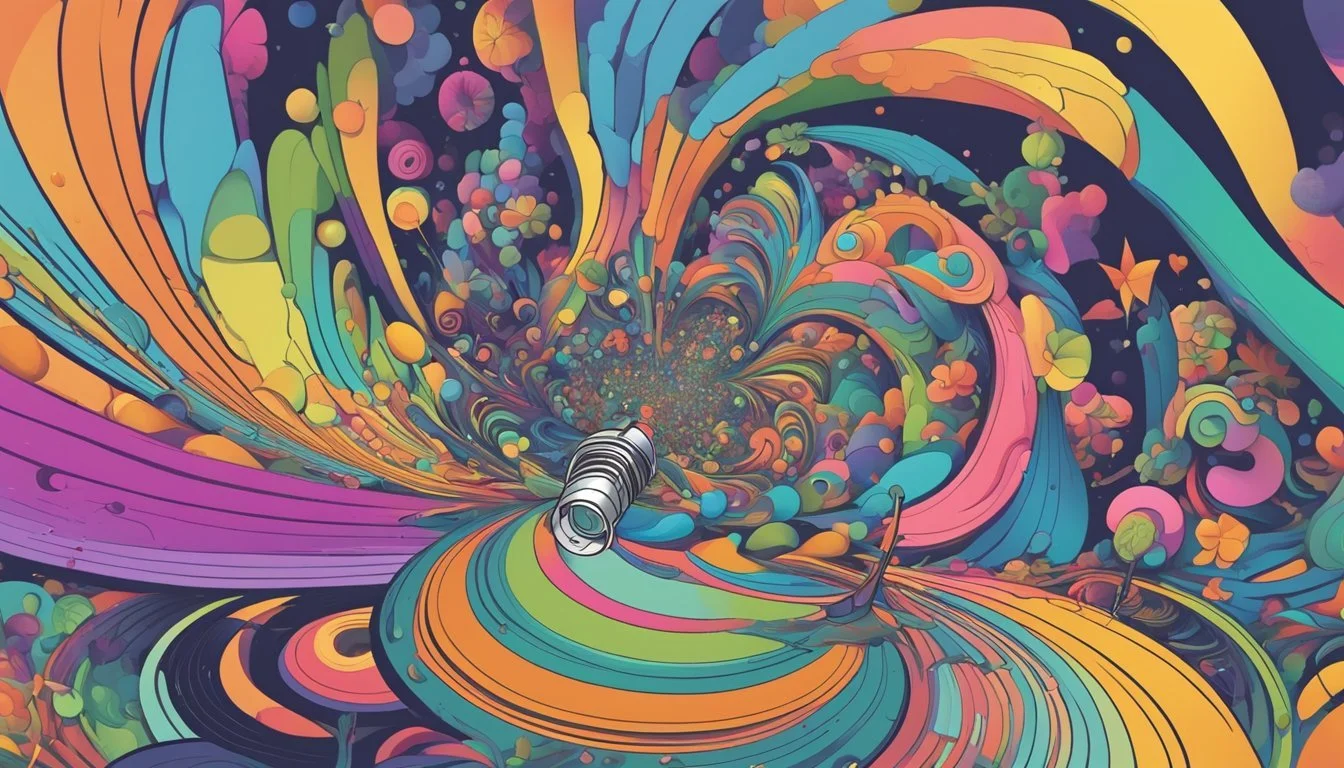Psychedelic Research Pioneer Rick Doblin Enlightens Joe Rogan Audience
MAPS Founder Discusses Psychedelic Therapy
Rick Doblin, founder and executive director of the Multidisciplinary Association for Psychedelic Studies (MAPS), has appeared multiple times on Joe Rogan's popular podcast. Their conversations delve into the world of psychedelic research and therapy, bringing these topics to a wide audience.
Doblin's appearances on The Joe Rogan Experience have helped educate millions about the potential benefits of psychedelic-assisted therapies, particularly for conditions like PTSD. In their discussions, Doblin shares insights from MAPS' groundbreaking research, including successful Phase 3 clinical trials using MDMA-assisted therapy for PTSD treatment.
These podcast episodes offer listeners a unique opportunity to hear directly from a leading figure in psychedelic research. Doblin's expertise and Rogan's engaging interview style combine to create informative and thought-provoking conversations about the future of mental health treatment and drug policy reform.
Exploring the Life and Influence of Rick Doblin
Rick Doblin has made significant contributions to psychedelic research and advocacy. His work with the Multidisciplinary Association for Psychedelic Studies (MAPS) has helped advance scientific understanding and therapeutic applications of psychedelic substances.
Early Life and Education
Rick Doblin was born in 1953 and grew up in suburban Chicago. He first encountered psychedelics as a teenager, which sparked his lifelong interest in their potential. Doblin pursued his education at New College of Florida, where he earned a degree in psychology.
Later, he obtained a master's degree in public policy from Harvard's Kennedy School of Government. In 2001, Doblin completed his Ph.D. in public policy at Harvard, focusing on the regulation of medical uses of psychedelics and marijuana.
Foundation of MAPS
In 1986, Rick Doblin founded the Multidisciplinary Association for Psychedelic Studies (MAPS). This non-profit organization aims to develop medical, legal, and cultural contexts for people to benefit from careful uses of psychedelics and marijuana.
MAPS has been instrumental in conducting FDA-approved clinical trials on MDMA-assisted therapy for PTSD. Under Doblin's leadership, MAPS has completed two successful Phase 3 studies. The organization continues to work towards making MDMA-assisted therapy a legal prescription treatment for PTSD.
Doblin's efforts have helped shift public perception and policy regarding psychedelic substances. His appearances on platforms like the Joe Rogan podcast have further amplified his message and increased awareness of MAPS' work.
The Synergy of Comedy and Psychedelics
Psychedelic experiences have influenced many stand-up comedians' creative processes and material. Several prominent comics have openly discussed using psychedelics and incorporating those insights into their work.
Stand-up Comics and Psychedelic Culture
Shane Gillis, Mark Normand, and Ari Shaffir are among the comedians who have shared their psychedelic experiences publicly. These comics often integrate their insights from psychedelic use into their routines, offering unique perspectives on life, society, and human behavior.
Shane Gillis has mentioned using mushrooms and how it affected his outlook. Mark Normand has discussed trying various psychedelics and their impact on his comedy. Ari Shaffir frequently talks about psychedelics in his performances and podcasts.
Many stand-up comics view psychedelics as tools for introspection and creativity. They often explore these experiences on stage, connecting with audiences who may have had similar encounters or are curious about psychedelic culture.
Psychedelics in the Creative Process of Comedy
Comedians report that psychedelics can enhance their creative thinking and help generate new material. Some find that these substances allow them to view everyday situations from fresh angles, leading to novel comedic observations.
Psychedelic experiences often inspire comedians to tackle more profound topics in their routines. They may delve into existential themes, social commentary, or personal growth stories stemming from their psychedelic journeys.
Many comics credit psychedelics with helping them overcome creative blocks or stage fright. These substances can sometimes provide a sense of connection and empathy, which translates into better audience rapport during performances.
Some comedians integrate specific psychedelic-induced insights or visuals directly into their acts. This can result in surreal or abstract humor that resonates with audiences familiar with psychedelic experiences.
Podcast Landscape and Comedy
Comedy podcasts have become a dominant force in the audio entertainment landscape. They offer comedians new platforms to showcase their talents and connect with audiences in unique ways.
Rise of Comedy Podcasts
Comedy podcasts have exploded in popularity over the past decade. Shows like "Matt and Shane's Secret Podcast" and "Tuesdays with Stories" have built dedicated fanbases through their unfiltered humor and casual conversational style.
These podcasts provide comedians creative freedom to experiment with material and develop their voices. Many successful stand-ups now view podcasting as an essential part of building their brand and reaching new fans.
The low barrier to entry has allowed both established and up-and-coming comics to launch shows. This has led to a diverse ecosystem of comedy podcasts catering to different tastes and styles of humor.
Influence of Podcasts on Modern Comedy
Podcasts have significantly impacted how comedy is created and consumed. They've blurred the lines between scripted and improvised material, with many shows featuring a mix of prepared bits and off-the-cuff riffing.
Shows like "Gilly and Keeves" and "We Might Be Drunk" showcase how podcasts can serve as laboratories for developing comedy sketches and routines. Bits that land well on podcasts often make their way into live stand-up sets.
The intimate nature of podcast listening has fostered stronger connections between comedians and fans. This direct line to audiences has allowed comics to build loyal followings outside traditional entertainment industry structures.
Podcasts have also influenced comedy writing, with more conversational and long-form styles becoming popular on stage and screen. The medium's flexibility continues to shape the evolution of modern comedy.
Contributions of Rick Doblin to Psychedelic Research
Rick Doblin has championed psychedelic research through his work with the Multidisciplinary Association for Psychedelic Studies (MAPS). His efforts have led to groundbreaking advancements in psychedelic therapy and significant impacts on mental health treatments.
Advancements in Psychedelic Therapy
Doblin founded MAPS in 1986, catalyzing a renaissance in psychedelic research. Under his leadership, MAPS has conducted rigorous clinical trials on MDMA-assisted therapy for PTSD. These studies have shown promising results, with many participants experiencing substantial symptom reduction.
MAPS has also expanded research into other psychedelics, including psilocybin and LSD. Doblin's work has helped legitimize psychedelic therapy in scientific and medical communities. His advocacy has been crucial in shifting public perception and regulatory attitudes toward these substances.
Through collaborations with researchers worldwide, Doblin has fostered a global network of psychedelic scientists. This has accelerated the pace of discoveries and innovations in the field.
Impact on Mental Health Treatments
Doblin's efforts have opened new avenues for treating various mental health conditions. MDMA-assisted therapy for PTSD is nearing FDA approval, potentially offering relief to millions of sufferers.
The research supported by MAPS has also shown promise for treating depression, anxiety, and addiction. These findings challenge traditional approaches to mental health care and offer hope for patients resistant to conventional treatments.
Doblin's work has influenced psychiatric practice, encouraging a more holistic view of mental health. By integrating psychedelic experiences with therapy, this approach addresses root causes rather than just symptoms.
MAPS' educational initiatives have trained therapists in psychedelic-assisted treatments, expanding access to these innovative therapies. This has created a ripple effect, influencing broader mental health practices and policies.
Intersection of Art, Music, and Psychedelics
Psychedelics have long influenced creative expression in music and visual arts. Their effects on perception and consciousness have inspired innovative works across genres and mediums.
Psychedelics and Musical Creativity
Many musicians credit psychedelics for enhancing their creative process. Artists report heightened auditory experiences and novel musical ideas under the influence. Grammy Award-winning producer Scott Storch has spoken about psychedelics' impact on his work.
Psychedelic substances have shaped entire musical movements. The 1960s psychedelic rock era saw bands like The Beatles and Pink Floyd incorporate these influences. More recently, electronic and hip-hop artists have drawn inspiration from psychedelic experiences.
Some musicians use microdosing to boost creativity without full psychedelic effects. This practice involves taking sub-perceptual doses to enhance focus and imagination.
Artistic Expression Under the Influence
Visual artists often explore altered states through their work. Psychedelic art emerged as a distinct style in the 1960s, characterized by vibrant colors and complex patterns. Artists like Alex Grey create intricate paintings inspired by psychedelic visions.
Digital art and animation have provided new avenues for representing psychedelic experiences. Many artists use software to recreate the visual effects of substances like LSD or psilocybin.
Some artists integrate psychedelics directly into their creative process. They may create while under the influence or use psychedelic experiences as a source of inspiration for later works.
Psychedelics in Popular Culture
Psychedelics have gained prominence in mainstream media and entertainment, influencing public perception and lifestyle choices. Their portrayal in various formats has sparked discussions and shifted attitudes towards these substances.
Representation in Netflix Productions
Netflix has featured psychedelics in several productions, contributing to their visibility in popular culture. The documentary "Have a Good Trip: Adventures in Psychedelics" showcases celebrities sharing their experiences with hallucinogenic substances. It offers a mix of comedic reenactments and serious reflections on psychedelic use.
The streaming platform also released "The Midnight Gospel," an animated series that explores philosophical concepts and often touches on psychedelic themes. This show blends surreal visuals with podcast-style conversations, presenting psychedelics in a thought-provoking context.
Influence on Lifestyle and Public Perception
Psychedelics have made their way into lifestyle trends and public discourse. Microdosing, the practice of taking small amounts of psychedelics, has gained attention as a potential cognitive enhancer and mood booster. This trend has been covered in various media outlets and discussed on popular podcasts.
Comedians like Ari Shaffir have openly talked about their psychedelic experiences, often incorporating them into their stand-up routines. Shaffir's candid approach to discussing these substances has contributed to normalizing conversations about psychedelics among his audience.
The Joe Rogan Experience podcast frequently features discussions about psychedelics, with guests like Rick Doblin providing scientific perspectives. These conversations reach millions of listeners, potentially shaping public opinion on psychedelic research and use.
Entrepreneurship in the Psychedelic Space
The psychedelic industry has attracted innovative entrepreneurs and advocates seeking to advance research, therapy, and public understanding. This emerging field offers unique opportunities and challenges for business leaders and changemakers.
Psychedelic Businesses and Startups
Several companies have entered the psychedelic space in recent years. COMPASS Pathways, founded in 2016, develops psilocybin therapy for treatment-resistant depression. The company went public in 2020, raising $146.6 million.
Field Trip Health operates ketamine-assisted psychotherapy clinics in North America and Europe. They've expanded rapidly since 2019, opening multiple locations.
MindMed focuses on developing psychedelic-inspired medicines and therapies. The company is researching compounds like LSD and MDMA for various mental health conditions.
Numinus Wellness offers psychedelic-assisted psychotherapy and operates a testing lab for psychedelic substances. They've acquired clinics and research sites to grow their footprint.
The Role of Entrepreneurs in Psychedelic Advocacy
Entrepreneurs play a crucial part in advancing psychedelic research and policy reform. Rick Doblin, founder of MAPS, exemplifies this dual role of advocate and organizational leader.
MAPS has spearheaded MDMA research for PTSD treatment, moving the therapy closer to FDA approval. Doblin's entrepreneurial approach combines scientific rigor with strategic fundraising and public education.
Other entrepreneurs, like Tim Ferriss, have used their platforms to raise awareness and funds for psychedelic research. Ferriss has donated millions and leveraged his podcast to discuss psychedelic science.
Entrepreneurs also support policy reform efforts. Dr. Bronner's CEO David Bronner has funded various ballot initiatives to decriminalize psychedelics in U.S. cities and states.
Miscellaneous Cultural References
Rick Doblin's appearances on the Joe Rogan Experience have sparked discussions on psychedelics in popular culture. These conversations have touched on various cultural depictions and references related to psychedelic substances.
Psychedelics and their Various Depictions
Psychedelics have been portrayed in diverse ways across different media. In film, movies like "Fear and Loathing in Las Vegas" depict intense psychedelic experiences. Music has long incorporated psychedelic themes, with bands like Pink Floyd and The Beatles famously exploring these concepts.
Literature has also embraced psychedelic narratives. Authors like Aldous Huxley and Tom Wolfe have written influential works on the subject. In recent years, television shows have begun to incorporate more nuanced portrayals of psychedelic use and research.
The art world has been significantly influenced by psychedelic experiences. Artists like Alex Grey have created intricate, visionary works inspired by psychedelic states. These artistic expressions have helped shape public perceptions of psychedelics.









